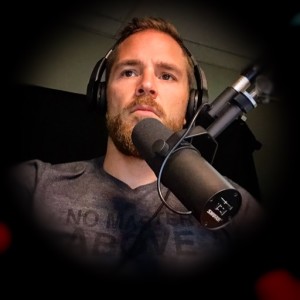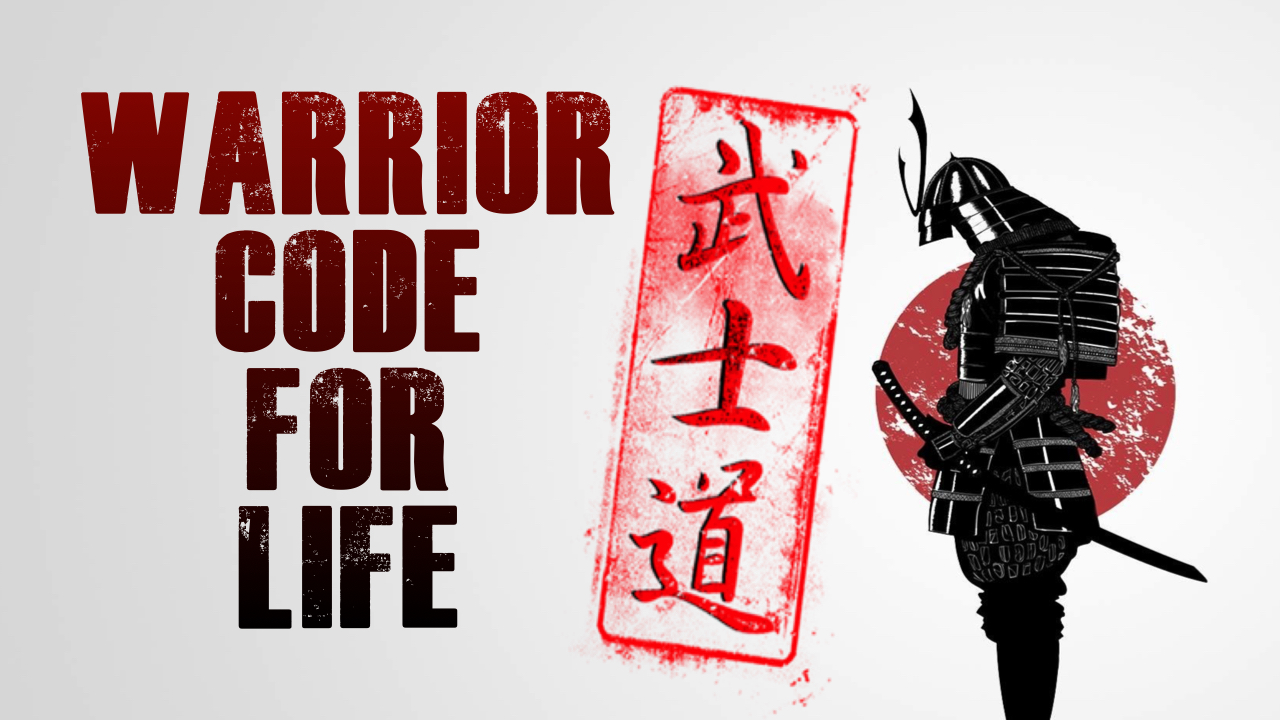
Way Of The Truth Warrior Podcast
Society & Culture

I think the warrior archtype needs to make a big comeback. In this episode I break down the code of the warrior in detail by featuring the ethics of Bushido/Budo & the 9 virtues of Asatru.
I talk about how this code of life is important and relevant for you in life, in your personal relationships, in your training, in your job, or in your business. After the breakdown I give some realistic action steps as to how you can empower your life and fuel your personal success to the next level.
BUSHIDO CODE:
- Righteousness (義 gi)
Be acutely honest throughout your dealings with all people. Believe in justice, not from other people, but from yourself. To the true warrior, all points of view are deeply considered regarding honesty, justice and integrity. Warriors make a full commitment to their decisions.
- Heroic Courage (勇 yū)
Hiding like a turtle in a shell is not living at all. A true warrior must have heroic courage. It is absolutely risky. It is living life completely, fully and wonderfully. Heroic courage is not blind. It is intelligent and strong.
- Benevolence, Compassion (仁 jin)
Through intense training and hard work the true warrior becomes quick and strong. They are not as most people. They develop a power that must be used for good. They have compassion. They help their fellow men at every opportunity. If an opportunity does not arise, they go out of their way to find one.
- Respect (礼 rei)
True warriors have no reason to be cruel. They do not need to prove their strength. Warriors are not only respected for their strength in battle, but also by their dealings with others. The true strength of a warrior becomes apparent during difficult times.
- Integrity (誠 makoto)
When warriors say that they will perform an action, it is as good as done. Nothing will stop them from completing what they say they will do. They do not have to 'give their word'. They do not have to 'promise'. Speaking and doing are the same action.
- Honour (名誉 meiyo)
Warriors have only one judge of honor and character, and this is themselves. Decisions they make and how these decisions are carried out are a reflection of whom they truly are. You cannot hide from yourself.
- Duty and Loyalty (忠義 chūgi)
Warriors are responsible for everything that they have done and everything that they have said, and all of the consequences that follow. They are immensely loyal to all of those in their care. To everyone that they are responsible for, they remain fiercely true.
- Self-Control (自制 jisei) - With great power comes great responsibility
- TRUTH - (From the 9 noble virtues of Asatru)
Truth is the willingness to be honest and to say what one knows to be true and right. It is often better to not say anything at all if one cannot be honest. But likewise, when one does say something, it is best to be truthful and speak what one sees, not what others would like to hear. But we also have a warning on the concept of Truth, and that is that whilst we should endeavour to speak the truth at all times, do not be fooled into speaking the truth when others lie to you. The Havamal councils us to respond to lies with lies. Tell the truth, even when there could be painful consequences. The consequences for lying are often more harmful than the quick pain of telling the truth and getting the situation over with. Courage fosters truth, and truth furthers courage- we must be incessant in striving for that which is right, what we know to be right, and what we know to be true. Truth is the underlying principle of holy realization, and ultimately that which steels us in our courage! Without truth, we have no fundamental realization on any significant level, nor the courage or will to achieve and evolve, relegating our very Being to nothing more than a farcical play. Our ancient ancestors valued truthful speech and honest deeds. This was shown by their strong avoidance of lies (unless lied to) and of oath breaking. In a society where a man's word was better than a contract, honesty was a necessity. Directly tied to truth is modesty, or rather a tendency not to exaggerate one's own feats. This may seem in opposition to the Elder Heathens' heroic boasting, but one must understand that the boasting such as in Beowulf was more a proclamation of feats done by one's self and one's forbears, and not the idle bragging of unaccomplished men. As "It isn't bragging if you can do it." Ritual boasting followed a set pattern of naming the feats of one's gods, one's forbears, and one's self before making an oath to do a great deed. This was done at the ritual sumbel and before combat. In a society where one might have to prove one's word by risking his life, there was no room for the idle boasts.
HAVAMAL:
counsel you second; swear no oath
But what you mean to abide by:
A halter awaits the word breaker,
Villainous is the wolf-of-vows.
9 VIRTUES FULL LIST
More Episodes
 2024-05-19
2024-05-19
 1.4k
1.4k
 2024-05-17
2024-05-17
 2.8k
2.8k
 2024-05-07
2024-05-07
 1.9k
1.9k
 2024-04-12
2024-04-12
 4.0k
4.0k
 2024-03-15
2024-03-15
 4.4k
4.4k
 2024-03-13
2024-03-13
 3.6k
3.6k
 2024-03-01
2024-03-01
 4.6k
4.6k
 2024-02-09
2024-02-09
 3.7k
3.7k
 2024-02-02
2024-02-02
 4.9k
4.9k
 2024-01-26
2024-01-26
 4.1k
4.1k
 2024-01-19
2024-01-19
 4.9k
4.9k
 2024-01-06
2024-01-06
 8.6k
8.6k
 2023-12-15
2023-12-15
 4.7k
4.7k
 2023-12-08
2023-12-08
 4.5k
4.5k
 2023-12-01
2023-12-01
 3.9k
3.9k
Create your
podcast in
minutes
- Full-featured podcast site
- Unlimited storage and bandwidth
- Comprehensive podcast stats
- Distribute to Apple Podcasts, Spotify, and more
- Make money with your podcast
It is Free
- Privacy Policy
- Cookie Policy
- Terms of Use
- Consent Preferences
- Copyright © 2015-2024 Podbean.com





